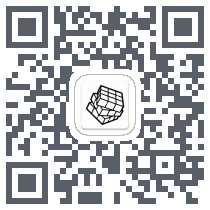why anki
active recall testing means being asked a question and trying to remember the answer
this is in contrast to passive study where we read watch or listen to something without
pausing to consider if we know the answer research has shown that active recall testing
is far more effective at building strong memories than passive study there are two reasons
for this the act of recalling something strengthens the memory increasing the chances well
be able to remember it again when we're unable to answer a question it tells us we need
to return to the material to review or relearn it you have probably encountered active
recall testing in your school years without even realizing it when good teachers give you
a series of questions to answer after reading an article or make you take weekly progress
check tests they are not doing it simply to see if you understood the material or not by
testing you they are increasing the chances you will be able to remember the material in
the future a good way to integrate active recall testing into your own studies is to use
flashcards with traditional paper flashcards you write a question on one side of a card
and the answer on the other side by not turning the card over until you've thought about
the answer you can learn things more effectively than passive observation allows
use it or lose it
our brains are efficient machines and they rapidly discard information that doesn't seem
useful chances are that you don't remember what you had for dinner on monday two
weeks ago because this information is not usually useful if you went to a fantastic
restaurant that day and spent the last two weeks telling people about how great it was
however you're likely to still remember in vivid detail the brain's use it or lose it
policyapplies to everything we learn if you spend an afternoon memorizing some
science termsand then don't think about that material for two weeks you'll probably
have forgotten mostof it in fact studies show we forget about 75% of material learnt
within a 48 hour period this can seem pretty depressing when you need to learn a lot
of informationthe solution is simple however review by reviewing newly learnt information
we can greatly reduce forgetting the only problem is that traditionally reviewing has not
been very practical if you are using paper flashcards it's easy to flick through all of
them if you only have 30 of them to review but as the number grows to 300 or 3000
it quickly becomes unwieldy
spaced repetition
the spacing effect was reported by a german psychologist hermann ebbinghaus in 1885
he observed that we tend to remember things more effectively if we spread reviews out
over time instead of studying multiple times in one session since the 1930s there have
been a number of proposals for utilizing the spacing effect to improve learning in what
has come to be called spaced repetition one example was in 1972 when a german
scientist called sebastian leitner popularized a method of spaced repetition with paper
flashcards by separating the paper cards into a series of boxes and moving the cards to a
different box on each successful or unsuccessful review it was possible to see at a glance
a rough estimate of how well a card was known and when it should be reviewed again this
was a great improvement over a single box of cards and it has been widely adopted by
computerized flashcard software it is a rather rough approach however as it cannot give
you an exact date on which you should review something again and it does not cope very
well with material of varying difficulty the biggest developments in the last 30 years
have come from the authors of supermemo a commercial flashcard program that
implements spaced repetition supermemo pioneered the concept of a system that
keeps track of the ideal time to review material and optimizes itself based on the
performance of the user in supermemo's spaced repetition system every time you
answer a question you tell the program how well you were able to remember it whether
you forgot completely made a small mistake remembered with trouble remembered easily
etc the program uses this feedback to decide the optimal time to show you the question
again since a memory gets stronger each time you successfully recall it the time between
reviews gets bigger and bigger so you may see a question for the first time then 3 days
later 15 days later 45 days later and so on this was a revolution in learning as it meant
material could be learnt and retained with the absolute minimum amount of effort
necessary supermemo's slogan sums it up: with spaced repetition you can
forget about forgetting




